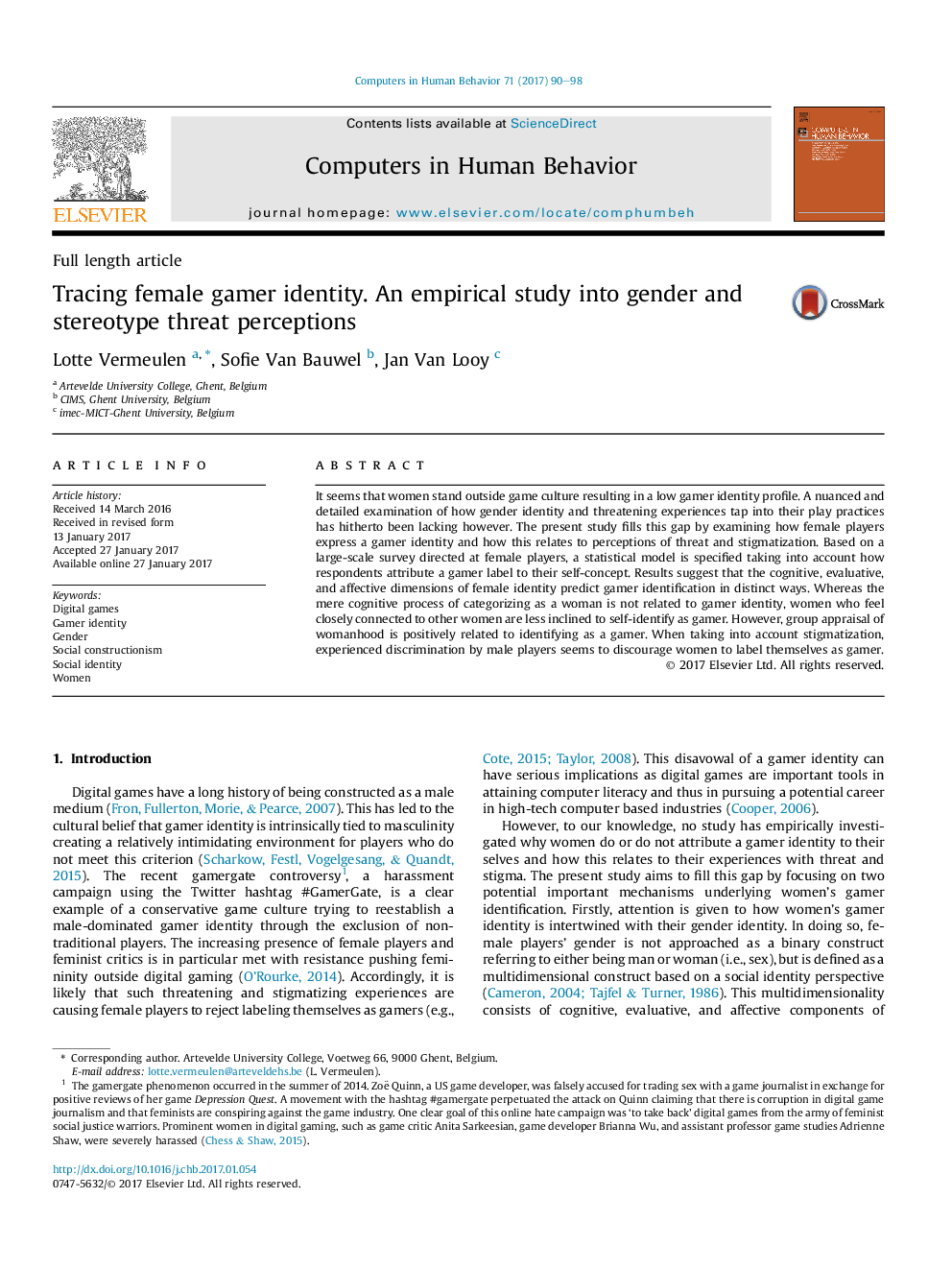| Article ID | Journal | Published Year | Pages | File Type |
|---|---|---|---|---|
| 4937343 | Computers in Human Behavior | 2017 | 9 Pages |
Abstract
It seems that women stand outside game culture resulting in a low gamer identity profile. A nuanced and detailed examination of how gender identity and threatening experiences tap into their play practices has hitherto been lacking however. The present study fills this gap by examining how female players express a gamer identity and how this relates to perceptions of threat and stigmatization. Based on a large-scale survey directed at female players, a statistical model is specified taking into account how respondents attribute a gamer label to their self-concept. Results suggest that the cognitive, evaluative, and affective dimensions of female identity predict gamer identification in distinct ways. Whereas the mere cognitive process of categorizing as a woman is not related to gamer identity, women who feel closely connected to other women are less inclined to self-identify as gamer. However, group appraisal of womanhood is positively related to identifying as a gamer. When taking into account stigmatization, experienced discrimination by male players seems to discourage women to label themselves as gamer.
Related Topics
Physical Sciences and Engineering
Computer Science
Computer Science Applications
Authors
Lotte Vermeulen, Sofie Van Bauwel, Jan Van Looy,
